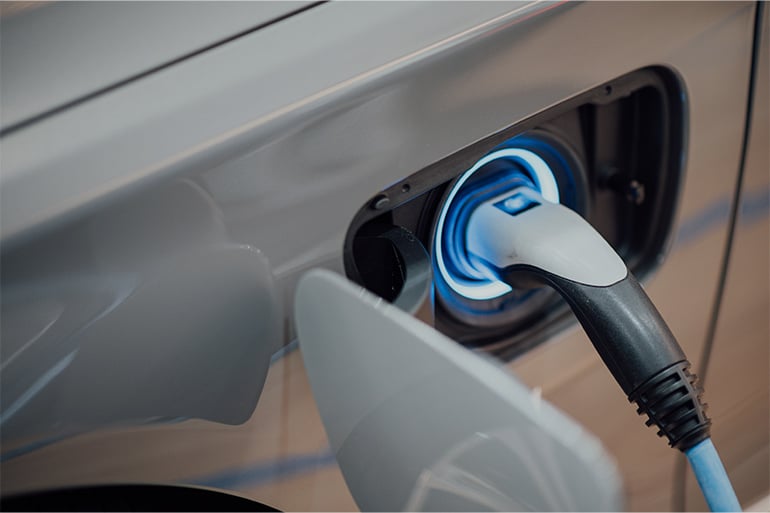April 13, 2022
September 10, 2025
Driving a foreign car in Spain
If you are thinking of bringing your vehicle from abroad, you will also be asking yourself a very common question: what is the process of registering a car in Spain? Without any doubt, it is one of the first things to take into account before traveling, because according to the law : article 62 of Law 6/2014 on April 7 on Traffic, Circulation of Motor Vehicles and Road Safety, all cars circulating in Spanish territory must be registered by all persons or entities resident in the country, and this is required by the Directorate General of Traffic.
However, this process is not the same for every situation and can vary significantly depending on the country from which the vehicle is imported, the model of the vehicle and its current value.
What does the price of registering a car in Spain depend on?
Registering a car in Spain is a process with many formalities and its price varies for each case, taking into account whether or not the country from which it comes belongs to the European Union, the model of the vehicle and its current value depending on the state in which it is: if it is new or on the contrary, if the car is second-hand.
Before making any decision, you should know that it is a process that is worth taking your time, going through the numbers and doing it correctly, as the price difference is not small and can vary by thousands of euros.
What is the cost of registering a car in Spain from a European Union country?
In many cases, cars are imported from countries such as Germany or Italy not because of a change of residence, but because due to the good offers they have for the purchase of vehicles, it can be cheaper to buy it there and then import it to Spain for its registration, than to buy it in Spanish territory directly.
In any case, to register a car in Spain coming from an EU country such as Germany or Italy, the registration tax is divided into four sections depending on the vehicle's emissions:
-
You are exempt from paying if your vehicle has emissions less than or equal to 120 g/km CO2.
-
You pay 4.75% of the value of the vehicle for those with emissions greater than 120 g/km CO2 and less than 160 g/km CO2.
-
You pay 9.75% of the value of the vehicle for those with emissions greater than or equal to 160 g/km CO2 and less than 200 g/km CO2.
-
You pay 14.75% of the value of the vehicle for those with emissions greater than or equal to 200 g/km CO2.
Steps to register a vehicle coming from the EU
If you are looking to import your car from another country of the European Union, either because you are going to settle in Spain or because you have taken advantage of the prices in other countries to buy your car, you will have to re-register it to be able to drive it in Spanish territory and for this, you will have to be the owner of the vehicle.
These are the steps to register a vehicle coming from a country within the European Union:
-
Acquisition and accreditation of the ownership of the vehicle.
-
Obtain the Spanish ITV technical data sheet.
-
Pay the taxes related to the purchase and registration of the vehicle.
-
Request the registration of the vehicle at the Traffic Department.
-
Place the plates with the new registration on your vehicle.
For more information, you can consult the section of the web site of the “Dirección General de Tráfico” to register a foreign vehicle coming from an EU country.
Steps to register a vehicle coming from a non-EU country
The process to import a vehicle from a country outside the European Union is a little more complex than if it were from a country belonging to the EU. The car in question must first pass through Customs and then be re-registered in Spain, for which it will require additional documentation and paperwork.
These are the steps to register a vehicle coming from a country outside the European Union:
-
Acquisition and accreditation of the ownership of the vehicle
-
Import Through Customs.
-
Obtain the Spanish ITV technical data sheet.
-
Pay the taxes related to the registration of the vehicle.
-
Request the registration of the vehicle in Traffic.
-
Place the plates with the new registration on your vehicle.
For more information, you can consult the section of the web site of the “Dirección General de Tráfico” to register a foreign vehicle coming from a non-EU country.
What happens if the registration process of my car takes longer?
For these cases, whether you import your vehicle from a country belonging or not to the European Union, the solution is very simple and economical: you can request the temporary registration of your vehicle as long as it is insured and thus be able to drive it while the registration process is being completed.

I have already registered my car... Now what?
After you have finished the whole process of registering your vehicle and finally, you have your car with Spanish license plates, it will be almost ready to drive on the road, but first you will have to take out insurance coverage.
There are some different types of policies you can take, so you will have to take your time to find the one that best suits you and can give you everything you are looking for. If you are a bit lost and don't know where to start looking, on our website you will find a car insurance comparison to see the coverages you prefer. Be aware that Caser Autohelp, included in all the car products, can save your life by notifying us immediately if you have an accident on the road. In this way, we will be able to quickly contact the emergency services to give you assistance as soon as possible so that at no time, you feel alone or unattended.
But if you are someone who is already informed and knows exactly what you need in your car insurance. You have at your disposal our price calculator to get the price of your car insurance in less than a minute and without obligation.
|
If you are searching for car insurance in Spain, Caser Expat Insurance has the right policy for you! |
.png?width=344&height=67&name=logo_caser%20(2).png)








Let Us Know What You Thought about this Post.
Put your Comment Below.